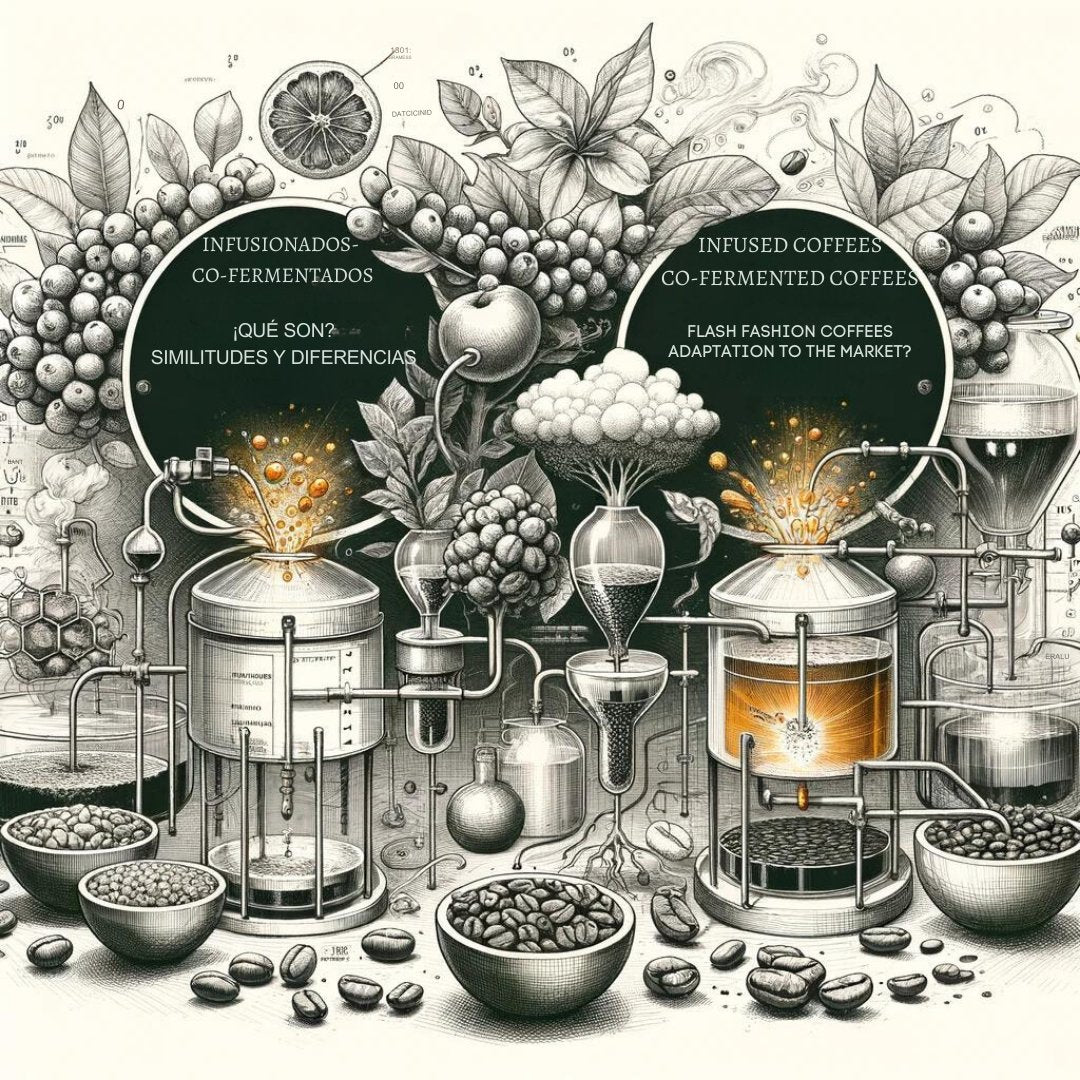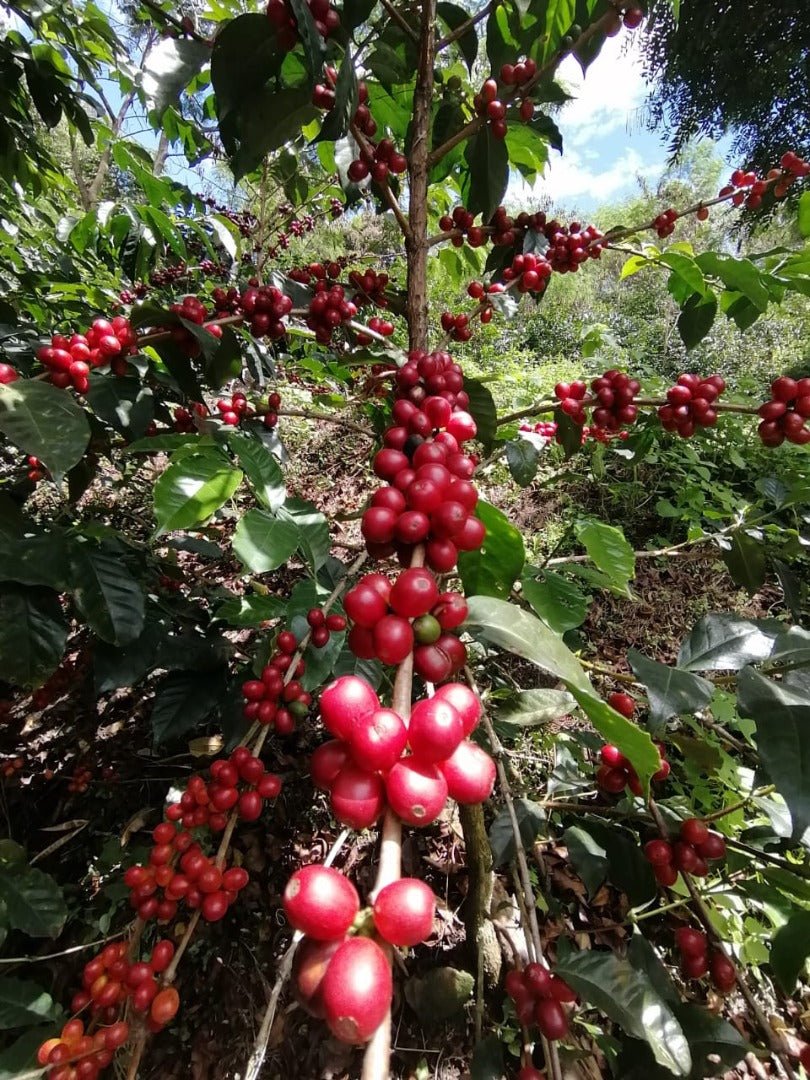What are infused and co-fermented coffees?
On the one hand, innovation and the search for new flavor profiles are recognized as responses to consumer demand and as a way of adaptation to climate change and other agricultural challenges. These processing methods represent an exploration of techniques that can add value to the product and allow producers to stand out in a competitive market. Co-fermentation with fruit, for example, is not simply an additive process, but rather a unique chemical interaction that can produce complex and surprising flavors.

However, controversy arises around the authenticity and perceived quality of these coffees. Some in the industry see these methods as a departure from specialty coffee ideals, concerned about how infusions and co-fermentations can alter the coffee's basic profile and potentially mask flaws. The addition of fruits and spices during fermentation has faced criticism from prestigious competitions and organizations, such as the Cup of Excellence and the World Barista Championships, which have strict policies against the addition of non-traditional ingredients.

Consumer receptivity to these innovations appears to be high, especially among those new to coffee or those seeking unique flavor experiences. Infused and co-fermented coffees offer an attractive entry point for these consumers, delivering distinctive and bold flavors that may be easier for untrained palates to appreciate.
Despite the debates, the trend toward infused and co-fermented coffees reflects a broader movement toward experimentation and innovation in the specialty coffee industry. Challenges related to transparency, quality and authenticity will continue to be points of discussion as the industry strives to balance innovation with standards of quality and tradition.

In summary, although there are legitimate concerns about the long-term viability and acceptance of these methods by the entire coffee supply chain, innovation in coffee processing appears to be a reflection of the industry's constant evolution and adaptation. to market demands and agricultural challenges. The continuation of these practices will depend largely on market acceptance, clarity in regulations and the ability to effectively communicate added value to consumers.
Do you want to try a co-fermented coffee?

In this case, fruits purple is co-fermented with grapes and incredible notes of violets. I would highlight its defined, clean flavor and its ability to surprise, reflecting the dedication and art behind its production. By offering it, we want to share with our clients this unique experience and the story of passion and quality that accompanies it.









